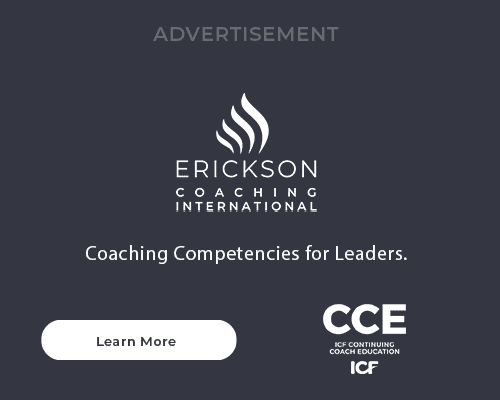The Top 3 Reasons You Should Be Credentialed as a Coach
Anyone can say, “I’m a coach.” But an International Coaching Federation (ICF) credential is a professional certification that sets you apart. It says you’re a coach who has met specific standards and requirements designed to develop and refine your coaching skills. It shows your dedication to upholding strong principles of ethical behavior in coaching. And an ICF credential tells your clients and peers that you are committed to the coaching industry, and to developing yourself as a coaching professional.
Many coaches find that achieving an ICF credential is a necessity in a growing industry. Let’s count down the top three reasons:
#3 — Increased Visibility
Once you’ve earned an ICF credential, you’ll have access to a digital badge. This provides a simple and verifiable way to share your achievement with your professional and personal networks. Badges provide concrete evidence of what you had to do to earn the credential, the date the credential was awarded, and the date of its expiration. You can easily share your badge on social media, including LinkedIn, and add it to your email signature, blog, or website.
ICF credential-holders who are also ICF members receive a free listing on the ICF Credentialed Coach Finder. The Credentialed Coach Finder can help you connect with individuals and organizations that seek your coaching services.
#2 — A Competitive Advantage
More than 50,000 individuals worldwide have recognized the value an ICF credential has brought to their coaching practice. An ICF credential signals credibility and integrity, backed by an organization that has served as the global gold standard for independent professional coach certification for nearly 25 years. ICF credential-holders pursue and complete rigorous education and practice requirements that demonstrate their unquestionable commitment to excellence in coaching. Furthermore, 81% of coach practitioners agree or strongly agree that clients expect their coaches to be certified/credentialed, according to the 2020 ICF Global Coaching Study.
And the #1 reason is:
#1 — Satisfied Clients
The 2022 ICF Global Consumer Awareness Study found that nearly two-thirds (65%) of those who had previously participated in a coaching relationship said their coach held a certification/credential from a membership organization. Of those, more than half (55%) reported they were very satisfied with their coaching experience, compared with 27% of respondents whose coach did not hold a credential or certification.
And that’s not all. In the same study, almost eight-in-ten (78%) of survey respondents who were aware of coaching and/or ICF and who would consider a coaching relationship said it was important (44%) or very important (34%) for their coach to hold a certification/credential.
Are You Ready to Continue Your Journey?
The process of applying for an ICF credential depends on the level of credential you are pursuing and where you completed your coaching education/training.
Remember, holding a credential — especially an ICF credential — is extremely important to today’s coaching clients. Earning an ICF credential provides you with instant credibility and increased visibility to prospective clients. And the 2022 Global Consumer Awareness Study found that 85% of coaching clients say it’s important or very important that their coach holds a certification or credential.
I invite you to explore what it takes to become an ICF credential-holder and take the next steps in your professional coaching journey today.



